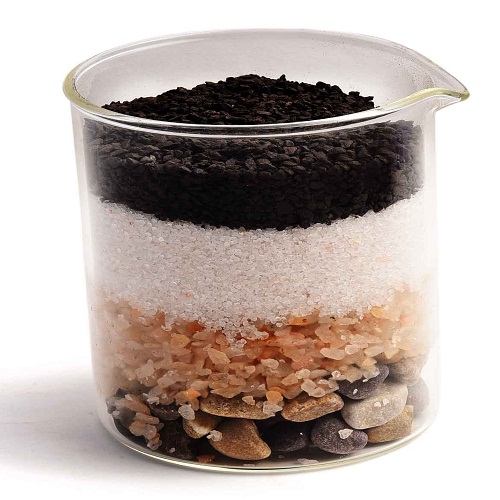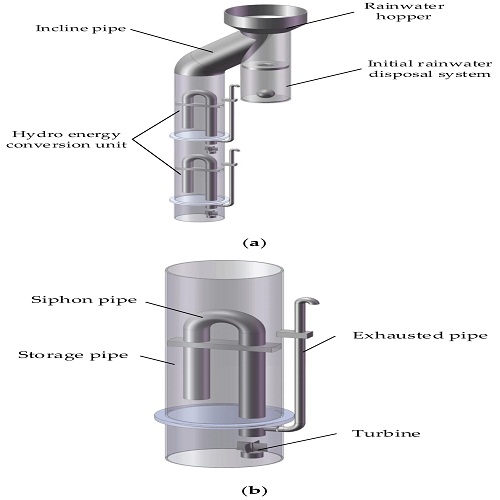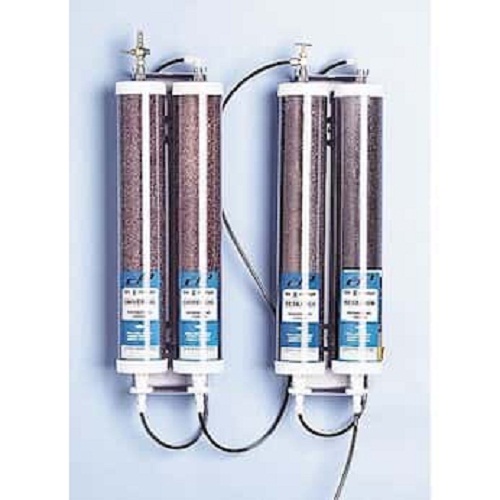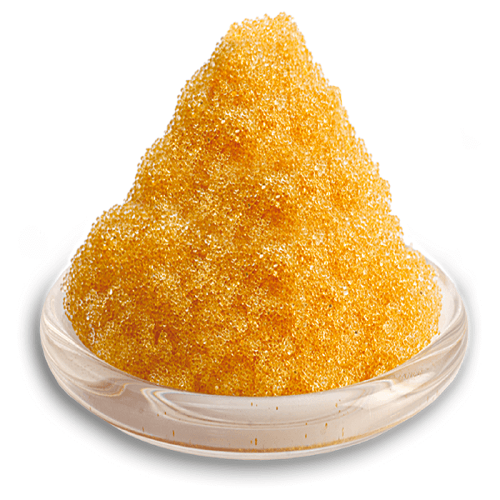
our category
FILTER MEDIA
Filter Media: Essential Solutions for Clean Water and Air
Overview:
Filter Media plays a critical role in a wide range of filtration applications, from water treatment and air purification to industrial processes and oil filtration. It serves as the material through which fluids (liquids or gases) pass, allowing for the removal of unwanted particles, contaminants, or pollutants. Available in various types and forms, filter media is an indispensable component in maintaining clean, safe, and efficient operations across different industries.
With advancements in material technology and filtration design, filter media has evolved to meet the growing demands for environmental sustainability, health safety, and high-performance filtration systems. The right choice of filter media can significantly improve efficiency, extend equipment lifespan, and reduce operational costs, making it an essential element in modern filtration systems.
Enquire Now
Types of Filter Media:
-
Activated Carbon Filter Media: Activated carbon is one of the most widely used filter media for removing odors, gases, and chemicals from water and air. Due to its high surface area and ability to adsorb contaminants, activated carbon is commonly used in water treatment plants, air purifiers, and industrial processes.
- Applications: Air purification, drinking water filtration, industrial gas treatment, and waste water treatment.
- Features: High adsorption capacity, chemical resistance, and effective removal of chlorine, volatile organic compounds (VOCs), and other contaminants.
-
Sand Filter Media: Sand filters are commonly used in drinking water treatment, wastewater treatment, and swimming pool filtration. Sand is an effective medium for removing suspended particles and organic material from water through a process of physical filtration.
- Applications: Water treatment facilities, swimming pools, irrigation, and industrial filtration.
- Features: Cost-effective, high particle removal efficiency, and easy to maintain.
-
Ceramic Filter Media: Ceramic filters are made from fine, porous ceramic material and are ideal for removing bacteria, suspended solids, and sediments from water. These filters provide high filtration precision, ensuring a high level of clean water for consumption and industrial use.
- Applications: Drinking water filtration, food and beverage industry, and industrial applications where fine filtration is necessary.
- Features: High dirt holding capacity, long lifespan, and eco-friendly nature.
-
Fiberglass Filter Media: Fiberglass is often used as filter media in high-efficiency air filters due to its fine fibers and ability to capture fine particles, including dust, pollen, and other airborne contaminants. Fiberglass filters are often used in HVAC systems, clean rooms, and industrial air filtration systems.
- Applications: Air filtration, cleanroom environments, HVAC systems, and industrial air purifiers.
- Features: High dust holding capacity, excellent filtration efficiency, and long operational life.
-
Polyester Filter Media: Polyester is a synthetic material commonly used for a wide variety of applications, including water, air, and oil filtration. Its durability, resistance to corrosion, and ability to be molded into various shapes make it an ideal choice for industrial filtration systems.
- Applications: Oil filtration, wastewater treatment, air filtration, and industrial filtration.
- Features: High chemical resistance, durable, and effective in filtering large particles and contaminants.
-
Cellulose Filter Media: Cellulose filters are made from natural plant fibers, providing an eco-friendly filtration solution for water and air filtration applications. These filters are often used in water filtration systems and food and beverage production.
- Applications: Drinking water filtration, food and beverage filtration, and general-purpose filtration.
- Features: Biodegradable, effective in removing suspended solids, and low cost.
-
Membrane Filter Media: Membrane filtration uses semi-permeable membranes to separate particles and contaminants from fluids. These filters are used in applications requiring high precision, such as in reverse osmosis (RO) systems, ultrafiltration, and microfiltration.
- Applications: Water purification, food processing, and pharmaceutical production.
- Features: High filtration efficiency, removal of pathogens and fine particulates, and suitable for high-pressure applications.
-
Metal Mesh Filter Media: Metal mesh filters are made of woven metal wires (usually stainless steel) and are used in applications where durability and resistance to high temperatures or chemicals are needed. These filters are commonly used for gas filtration, oil filtration, and coolant filtration in various industries.
- Applications: Industrial filtration, coolant filtration, and gas purification.
- Features: High strength, reusable, resistant to high temperatures and corrosion.
-
Synthetic Fiber Filter Media: Synthetic fibers such as polypropylene, polyester, or nylon are widely used in various types of filters for air, water, and industrial filtration applications. These fibers can be engineered for specific filtration needs and offer excellent durability.
- Applications: HVAC systems, automotive filtration, food processing, and air purification.
- Features: Customizable for specific particle sizes, durable, and cost-effective.
-
Spun Bonded Filter Media: Spun bonded filter media is commonly used in air filtration systems and liquid filtration due to its excellent particle retention capability. This material is known for its fine structure and ability to provide efficient filtration at a relatively low cost.
- Applications: Air filtration, liquid filtration, and dust collectors.
- Features: High-efficiency particle capture, light weight, and versatile application.
Applications of Filter Media:
-
Water Treatment: Filter media is widely used in drinking water purification, wastewater treatment, and industrial water filtration systems. From sand filters and membranes to activated carbon, filter media effectively removes contaminants such as sediments, bacteria, chemicals, and heavy metals from water, ensuring safe and clean water for consumption and industrial processes.
-
Air Filtration: Air filters made from materials such as fiberglass, activated carbon, and synthetic fibers are used in applications ranging from HVAC systems and air purifiers to industrial air filtration. These filters are essential in removing airborne particles like dust, pollen, smoke, and pollutants, improving indoor air quality and protecting equipment from contaminants.
-
Oil Filtration: Oil filtration systems in industries such as automotive, chemical, and food processing rely on materials like polyester, fiberglass, and metal mesh to remove impurities from oil. This helps extend the life of machinery, improve efficiency, and reduce maintenance costs.
-
Food and Beverage Filtration: In the food and beverage industry, filter media is used to purify liquids such as juices, beverages, and edible oils, ensuring product quality and safety. Materials like cellulose and ceramic are often chosen for their purity and effectiveness in removing unwanted particles from these products.
-
Pharmaceutical and Medical Applications: In the pharmaceutical industry, sterile filtration using high-performance membranes and ceramic filters ensures that medicines, vaccines, and other medical products are free from contaminants. This is essential for ensuring the safety and efficacy of pharmaceutical products.
-
Industrial Filtration: Industries involved in processes such as chemical production, mining, cement manufacturing, and steel production rely on durable filter media to remove dust, fumes, and particulate matter from air and liquids. Materials like synthetic fibers, metal mesh, and spun bonded media are commonly used in these demanding applications.
Why Choose the Right Filter Media?
-
Efficiency in Filtration: The right filter media ensures maximum removal of contaminants, improving the quality of water, air, or any other fluid being filtered. High-efficiency filters can capture particles of various sizes, including microscopic ones, resulting in cleaner and safer outputs.
-
Cost-Effectiveness: Selecting the appropriate filter media can reduce operating costs by lowering the frequency of filter replacement, minimizing system downtime, and extending the lifespan of equipment and machinery.
-
Environmental Impact: By using the right filter media, industries can reduce waste, lower energy consumption, and minimize pollution, contributing to a more sustainable environment. For example, activated carbon helps to remove harmful chemicals from water or air, reducing the environmental impact of pollution.
-
Regulatory Compliance: In industries like food processing, pharmaceuticals, and water treatment, using high-quality filter media ensures compliance with industry regulations and safety standards, helping businesses maintain consumer trust and avoid legal issues.
-
Health and Safety: Proper filtration is essential for ensuring the health and safety of employees, consumers, and the environment. Filter media removes harmful pollutants, bacteria, and chemicals from the air and water, reducing exposure to harmful substances.
Conclusion:
Filter media is an essential component in achieving efficient, safe, and sustainable filtration systems across a wide variety of applications. Whether used in water treatment, air purification, industrial processes, or food and beverage production, the right filter media ensures that systems operate efficiently, produce high-quality outputs, and contribute to a cleaner, healthier environment. By choosing the appropriate filter media for each application, businesses and industries can achieve optimal performance while minimizing environmental impact and operating costs.



